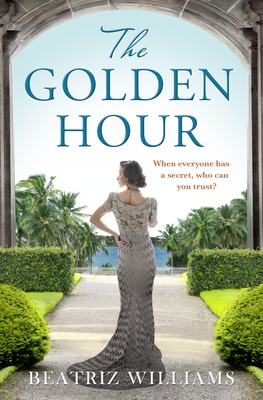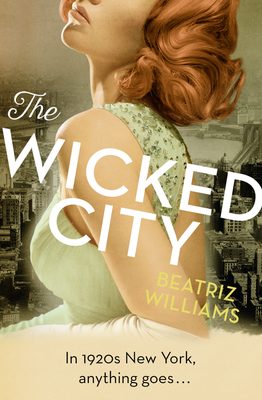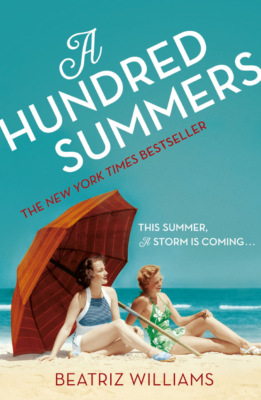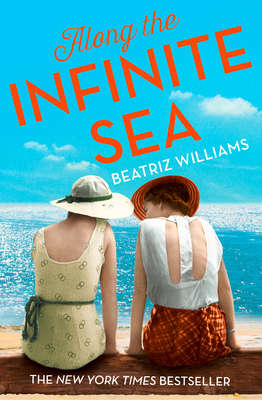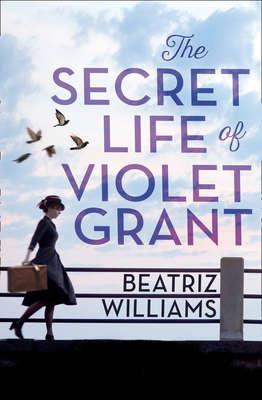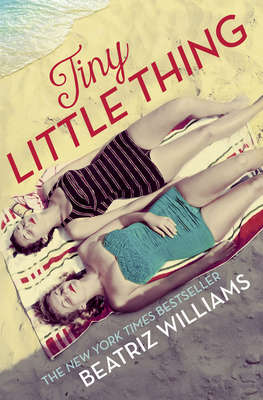Kitabı oku: «The House on Cocoa Beach: A sweeping epic love story, perfect for fans of historical romance», sayfa 2
CHAPTER 2
France, February 1917
HUNKA TIN
… But when the night is black,
And there’s blessés to take back,
And they hardly give you time to take a smoke;
It’s mighty good to feel,
When you’re sitting at the wheel,
She’ll be running when the bigger cars are broke.
Yes, Tin, Tin, Tin!
You exasperating puzzle, Hunka Tin!
I’ve abused you and I’ve flayed you
But by Henry Ford who made you,
You are better than a Packard, Hunka Tin!
—from the American Field Service Bulletin, 1917
(IN THE SPIRIT OF KIPLING’S “GUNGA DIN”)
I met my husband in the least romantic setting possible: a casualty clearing station in northern France in the middle of February. A cold drizzle fell and the air stank of human rot. I suppose this constituted a warning from Providence, though Providence needn’t have bothered. I had always known better than to fall in love. I had always known love was something you would later regret.
The CCS occupied the barn of an ancient farm, and by the time I reached it, late in the afternoon, the sky was dark and the ambulance wheels had choked with thawed mud. For weeks the winter had frozen the saturated ground; today, on the first day of a new offensive, the roads had turned to sludge. That was the war for you.
I brought the motor to a grinding halt in what had once been a stable yard and yanked back the brake. No other vehicles inhabited the swamp around me, and for a moment I thought I’d got the directions wrong. It was all just a hunch, after all: Hazel bursting back from the village, rushing down the empty ward, calling out that there was a battle on! A new attack into some salient or another, and if we wanted patients we should take the ambulance down to the nearest CCS, they’d be lousy with casualties! We were all rolling bandages at the time, there was nothing else to do. No patients to care for. Everyone turned to me. And what could I say? Take the ambulance, Hazel had said: the ambulance just brought down from Paris, our precious Hunka Tin, a bastard born of much wheedling and carrying-on with the American Red Cross Ambulance Service. A tattered, battered Model T that, in our entire sisterhood of accomplished Manhattan ladies, only I could drive.
Take the ambulance, Virginia, do! It’s not as if you have anything better to do.
She was right, of course. The rain was crackling on the great windows overlooking the courtyard. An infinite roll of lint lay in my lap like a death sentence. What else could I have said? Yes. I dumped that damned lint back into the basket and said yes.
A reckless act. Impetuous, my father would have said, shaking his head, and an hour later I’d regretted it passionately, but now that I’d arrived at my destination, the regret was gone. I rubbed my sleeve against the windshield fog—my breath kept clouding the glass—and spied the grim, erratic movements of a stretcher party lurching through the field beyond, half-obscured by mist. Above my head, a delicate whine pierced the air, high and gliding, ending in a percussive crump that rattled my bones. I reached for the door handle and forced myself out.
Four hours ago, as I left the hospital, Hazel suggested I borrow her rubber boots—The mud’s just awful, Virginia—but I hadn’t listened. I had my leather shoes, and from there I’d wrapped army-style puttees around my trousers, all the way to the knee, like a pair of gaiters, and I thought that was enough. Smart and efficient. That was all the soldiers wore, wasn’t it? In those days, newly freed from my father’s house, I thought I didn’t have to follow anyone’s advice if I didn’t want to. I thought I was free. From the moment of departure, from the instant the gray-sided ocean liner cast off into the Hudson River, I had soaked up the knowledge of my independence. I had reveled in reliance on my own common sense.
And that was all very well, except that the mud of northern France didn’t give a damn for my independence and my common sense. The mud didn’t give a damn for anything. I stuck my left leg out of the cab of the ambulance and into the wet French earth, and the muck swallowed up my neat leather shoe right past the ankle. You can’t imagine the greedy, sucking noises it made as I staggered across that stable yard, foot by foot, while the drizzle struck my helmet in metallic pings and the shells screamed and popped at some worryingly unknown distance. The front-line trenches were supposed to be miles away, but you couldn’t tell that to your ears, or to your heart that crashed every time those screaming whistles pierced the air in twos and threes, inhuman and relentless, followed by those acoustic crumps that meant someone had just gotten hell. Shellfire had a way of sounding as if it was going to drop directly on the crown of your head, every time.
I was making for the stretcher party, not the barn. I don’t know why. I think I just wanted to help, right that second, after so many weeks and months of preparation. Like the rest of us American volunteers, I was simply dying for a real live patient. Two men carried the wounded soldier, who was covered by a blanket and nothing else, and my God, how I wondered that he hadn’t fallen off the canvas altogether as the stretcher-bearers staggered through the mud, drunken and exhausted. The rain dripped from their helmets. “Need a hand?” I called out, and their heads jerked hopefully upward at the sound of my voice.
“Jesus,” the first one swore, “who the devil are you?”
“I’m from the American Red Cross,” I said. “I was sent out to bring patients to a hospital nearby. They said you were overloaded.”
“You’re a driver?”
Of the two, the second man looked the worst, whey-faced and vertiginous, as if the next step might kill him. I leapt across a puddle and reached for the handles of the stretcher. “Yes,” I said. “What have we got?”
The man was too tired—or else too astonished—to dispute the stretcher with me. He fell away, rubbing his blistered palms against his trousers, and I took the load in my own hands. It was lighter than I expected, a strange living weight, like a child instead of a man. The wounded soldier’s face was pale and wet; I couldn’t tell where he was hit, beneath the blanket.
“Right leg,” said the second man. “Sent back straightaway for amputation.”
“Can they amputate here?”
“Got no choice, have they?”
The soldier moved his head and groaned. Still wore his helmet, slipped to one side, covering his ear and part of his jaw while his face and young brow remained exposed to the drizzle. His pack lay next to him on the stretcher, shielded by the gray blanket.
“Almost there,” I told him, and his startled eyelids swooped open and his eyes met mine, very briefly, before a patch of mud sent me wallowing for balance.
“Blimey,” he said, blinking, “am I dead already?”
“You ain’t dead, mate,” the second man said. “It’s the American Red Cross, innit.”
“Blimey.” The soldier closed his eyes. “God bless America.”
Ahead of us a door swung open on the face of the barn, and a man’s shoulders appeared in silhouette against the electric light within. “Goddamn it!” he shouted. “I told the last party we haven’t got room!”
“Well, they ain’t told us back up the line, sir,” the first man said.
“We can’t bloody well take him!”
“He needs the leg off, sir, on the double.”
The other man pounded his fist against the side of the doorway. He took a step toward us, into the soggy remains of the daylight. Stopped, frowned. He wore a dilapidated khaki tunic, officer’s stripes. The rain struck his bare head. “Who the devil’s this?”
“The American Red Cross, sir,” said the first man.
“How in the hell did she get here?”
I nodded toward the Model T. “I drove, sir.”
“You drove that? From where?”
“From Marieux, sir. We’ve set up a private hospital there, only we weren’t getting any patients, so I went back to Paris and found a Model T from the American Ambulance—” The stretcher handle slipped in my wet right hand.
“Never mind.” The doctor stepped forward and yanked the stretcher handles from my fingers. “Carry on, for God’s sake. Get the poor sod out of the rain. Now!”
He had the kind of manner you couldn’t refuse, the kind of resolve you couldn’t just turn. I think I admired him right then, whether or not I realized it. I couldn’t help it. After all, I was used to a strong masculine will. His authority seemed natural and just, derived from the consent of those governed. I scampered like a damned puppy at his heels. Followed him into the barn, refusing to be shunted. “We’ve got plenty of beds at the hospital,” I said. “I can take three stretchers or six sitting in the ambulance.”
“I don’t know this hospital of yours.”
“We’re fully staffed, sir. Eight nurses, two doctors. Both experienced surgeons. You said you’re full.”
“All Americans, I suppose.”
“Yes.”
We ducked through the doorway of the barn, into a shower of electric light that stung my eyes. Around us stretched a ward of perhaps fifty beds, all of them occupied; a number of cots seemed to have been put up along the walls, staffed by a thin swarm of orderlies and a few nursing sisters in gray dresses and white pinafores. The smell of disinfectant saturated the damp air, swirling with the primeval odors of blood and earth. And not just any earth: this was the mud of France, battlefield mud, in which living things had died and decayed, and even now—years later—the stench still rots in the cavities of my nose like the memory of death. There is not enough disinfectant in the world to cleanse that smell.
The doctor didn’t pause. I don’t think he even heard me, any more than he would have heard an actual puppy scampering at his heels. He called out commands to a series of orderlies—Prepare the theater, Pass the word for Captain Winston—and only when he handed off the stretcher to the men assisting in the operating theater did he turn and fix his full attention upon me, like the next item on a long list of daily tasks, to be checked off and disposed of.
But the funny thing was—the really momentous thing, when I look back on the entire episode, trying to pinpoint this or that instant that might have constituted a turning point, a point of flexion at which my life might have taken an entirely different course—the funny thing was that his expression then changed. Transformed, like a man engaged in an obsessive quest, who had just parted a final pair of jungle branches and made the discovery for which he’d longed all his life.
His face, as I later learned, had that natural capability for transformation.
Where I had expected sternness, and frowns, and orders crossly delivered, I received something else. A smile, quite gentle. A movement of eyebrows that suggested understanding, and a little wonder. A bit of crinkling around a pair of eyes that had to be called hazel, though they tended, in certain light, toward green; surely that signified admiration?
My face turned warm.
“Miss—?”
“Fortescue.”
“Miss Fortescue. You’re the only evacuation ambulance to get through the roads today, did you know that? Either from the dressing station or the railway depot. How the devil did you do it?”
“I—I just drove, sir. Pushed her out when she got stuck.”
He drove a hand through his hair, which was sparkling with gray and cropped short, so that the bones of his face thrust out with additional clout. I thought he looked as if he came from the countryside, from some sort of vast outdoors; there was something a little rough-hewn about his cheeks and jaw, blunt, like a gamekeeper or else a poacher, although his creased skin was pale and sunless. His fingers, by contrast, contained all the delicate, tensile strength of a surgeon. I thought he must be exotically old, thirty-five at least. “Well, well. I’ll be damned,” he said. “You’re a heroine.”
“Not at all, sir. Just doing my best.”
“As are we all, Miss Fortescue, but you’re the only driver who actually made it through. That’s heroism.”
My cheeks burned. Of course. My chest, too, I think, while everything else went a little cold. At that point in my life—aged only twenty, sheltered for most of those years by a few square miles of tough Manhattan Island and a grim, reclusive father—I’d never received a compliment like that. Certainly not from a grown man, a man of mating age. I didn’t even know that kind of man, other than that he existed, a separate and untamed species, kept in another cage from mine on the opposite end of the zoo. And that was well enough with me. I had no interest in mating. Having survived such a childhood, I thought myself practical and resourceful—and I was, by God!—but not tender. Not susceptible to blandishment, and not susceptible to that particular kind of charm, the kind of charm you’re warned about in all the magazines: hazel eyes and a huntsman’s bones and an angel’s smile.
But now, at this instant, it turned out that I wasn’t immune at all. I was only innocent. Like a child who had never been exposed to measles, I thought I couldn’t catch them. That I was somehow stronger than all those weak, febrile children who had gotten sick.
I didn’t know how to answer him. I mumbled something. I forget what.
His smile, if possible, grew warmer. Incandescent, if I had to choose a word for it, which I did only at a much later hour, when I had the time and the composure to think rationally about him. He said, looking fearlessly into my eyes, “All right, then, Miss Fortescue. Heroine of the hour. If you want patients so badly.”
“Yes, we do,” I said, but he had already turned and barked out something to someone, and down we went along the rows of cots, selecting patients for transport. He gave me six, along with their paperwork, and asked me again for the name of the hospital.
“It’s a château, really,” I said. “Near Marieux. It belongs to the de Créouville family. Mrs. DeForest arranged to lease it—”
“Who the devil’s Mrs. DeForest?”
“Our chapter president.”
“Your chapter president,” he said, mock wearily, shaking his head. He was filling out the transfer papers with a beaten enamel fountain pen, using a medical dictionary as a desk. A small, sharp widow’s peak marked the exact center of his forehead. “What would we do without ladies’ committees?”
“A great deal less, I think.”
He looked up and handed me the papers. “You’re right, of course. God bless them all. I don’t suppose you have an orderly with you?”
“No.”
“Nurse?”
“There’s just me.”
“Just you. Of course.” He turned and called out to the nearest man, who straightened away from a bandage and looked afraid. “Miss Fortescue … is that right?”
“Yes. Fortescue.”
“Miss Fortescue from the American Red Cross has driven an ambulance all the way here from Marieux without an orderly, hell for leather, through mud and shellfire, in order to relieve us of some of our patients. Is Pritchard on duty?”
“No, sir. He’s on rest.”
“Fetch him up on the double and tell him we’ve got to escort six wounded men to the Château de Créouville, in Marieux.” Then, to me: “You’ll bring us back in the morning, won’t you?”
“Of course.”
Back to the orderly. “And find Miss Fortescue a cup of coffee and a sandwich, while you’re passing the mess. She looks like death. Perfectly charming death, but death nonetheless. We shall have no further harm come to her, do you hear me? She is absolutely essential.”
“Yes, sir.”
I tucked the papers under my arm. “If I may say so, sir, you should get some rest. You look like death yourself.”
“It’s Captain Fitzwilliam, Miss Fortescue. As well I should. But I’m afraid I shall have to make do with a ride in an American ambulance instead. You’ll be ready to shove off in twenty minutes?”
“Of course.”
That was all. A final smile, and he turned away and headed off into the maze of rubber curtains that partitioned the far end of the barn, while I stood there, dripping and bewildered, scintillating, waiting for my coffee and sandwich, for Corporal Pritchard. For my six wounded British soldiers.
For Captain Fitzwilliam, in his greatcoat and gum boots, who wanted to inspect us personally.
CHAPTER 3
Cocoa, Florida, June 1922
On second thought, maybe I’m not exactly surprised to see Simon’s brother emerging from an office in the headquarters of Simon’s shipping company. It’s been three years, after all, and even England and Germany are allies now. But certainly I’m shocked, with all the usual physical symptoms of shock, which I do my best to disguise. (You might say I’ve had a lot of practice at that.)
Does he notice? I can’t really say. Like me, he’s the kind of person who disguises his untoward emotions behind a set of frigid, automatic manners. He just holds out his hand and says, “Virginia. It’s good to see you again.”
“Yes.” I recover my balance and release Evelyn’s small fingers to take his palm. The contrast startles me. I had forgotten how large Samuel’s hands are. How large, my God, is the rest of him. “How are you?”
“Well enough.” His gaze falls upon Evelyn, who’s crept behind my right leg and now looks out from the shelter of my skirt.
“I didn’t know you and Simon were partners here.”
“We weren’t.”
“Then, if you’ll pardon my asking—”
He looks back up. “Your husband never actually allowed me a share in the business, Virginia. Despite the close nature of our relationship.”
“To be perfectly honest, I’m surprised he took you on at all. Given the close nature of your relationship.” I put the same ironic emphasis on those words as my brother-in-law did. Why not? We share a certain understanding, after all.
“Well, I guess he’d run out of other men to trust. Anyway, he got his money’s worth out of me.”
“Did he? I haven’t had the chance to examine the books yet. I’m sure I’ll find everything in order, won’t I?”
Mr. Burnside steps up on my other side. “Mr. Fitzwilliam was kind enough to stay on with the company, after his brother’s death.”
“I’m grateful.”
“The least I could do,” says Samuel. “And I was happily able to set Mr. Burnside straight about your existence, and where you might be found, and in the meantime—well. Here we are.”
“Here we are.”
Mr. Burnside says, “In your absence, ma’am, and acting for the estate, I appointed Mr. Fitzwilliam temporary director of Phantom Shipping and its affiliate concerns. There was really nobody else. The citrus plantation, as you know, has been in the family for some time.”
“Our grandfather’s American wife,” says Samuel.
“Yes. I remember Simon once told me something about it. A wedding present from her father to the happy couple, wasn’t that right?”
“Something like that. Although really more in the nature of a bribe, the rich old devil. I believe he hoped the glorious sunshine of Maitland Plantation would tempt the two of them near, but they preferred the pile of soggy family stones in Cornwall, God knows why, and poor old Maitland’s been mostly left to the incompetence of estate managers ever since. Well, until Simon came along, after the war.”
“And now you. You’re in charge of everything.”
Samuel shrugs. “So it seems.”
Mr. Burnside breaks in. “Of course, if you don’t think Mr. Fitzwilliam’s the right man for the job, I’m happy to look about for a replacement.”
You know, there’s something about Mr. Burnside’s tone that brings out the streak of perversity in me. I don’t know why. Maybe it’s because I’ve been such a very good girl the past few years, a model of respectability, absorbed in my child and my home, never once mentioning the thing that plagues me. Smiling serenely, while the world buckles and shifts around us, while women bob their hair and run out to smoke cigarettes and to vote, while fortunes are made by the illegal importation of liquor, while broad new highways are laid in their hundreds and I am not.
Or perhaps I’m just wondering—and surely you noticed it, too—why Mr. Burnside so artfully changed the subject when I mentioned those company accounts.
“Well, then. Maybe you should look around for a replacement, Mr. Burnside, just to be prepared. I think Samuel understands that he’s here on trial. I’ll be in a better position to make these decisions once I’m fully intimate with the details of the business.”
My exceptional height gives me a small advantage in making this pronouncement. Even as large as Samuel is—and I judge he’s a good four inches over six feet—I don’t have to turn up all that far to meet his gaze, and I can see that I’ve startled him. You know the look. His eyebrows shoot to the roof; his lips part.
But that’s nothing compared with Mr. Burnside, who gasps and mutters by my side, flapping his mouth and his eyelids, while Samuel and I lock eyes like a pair of rival giants.
“Come now, Mrs. Fitzwilliam!”
“She’s right, however,” says Samuel, not looking away. “It’s her business now, isn’t it? Once the estate clears probate.”
“But she’s just—”
“A woman?” Samuel breaks our little encounter at last and turns to the lawyer. “Mr. Burnside, I’m surprised a man your age doesn’t know better by now than to put those words together. Just a woman. Women rule the earth, don’t you know? A man doesn’t do a single thing that isn’t somehow inspired by a woman’s will. Sometimes all it takes is her mere existence. Anyway, you haven’t seen this particular woman drive a rattletrap Model T through the mud of a French battlefield, swearing like a sailor.”
“You’re wrong about that,” I say. “I never swore.”
“Didn’t you? Well, I suppose I never saw you in action, either. I only have it secondhand. Now, then. Would you like to see the rest of the offices, Virginia? All the accounts are in order and ready for your inspection.”
I glance at the clock on the wall, and the two other occupants of the room—the typist and the accountant—turn sharply back to their work. The steady undertone clatter of typewriter keys picks up again. The sound of business. Good, solid, American business, rushing on to meet the brash new age before us.
“I’m afraid I’m going to have to defer that pleasure until later this afternoon, Mr. Fitzwilliam. My daughter needs her nap.”
WHEN I FIRST MADE ACQUAINTANCE with the name of Mr. Cornelius Burnside, I was sitting at the desk of my suite in the Pickwick Arms Hotel on the Boston Post Road in Greenwich, Connecticut, sifting my way through a thick collection of mail that had been forwarded from the house in New York City. It was the middle of May and I was exhausted, having sat through yet another court hearing in the days before Father’s trial, and at first I didn’t quite understand the neat, typewritten words before me. (Typewritten, quite possibly, by that silent young lady in the navy blue suit in the office of the Phantom Shipping Company.)
I still have the letter, packed in a separate valise, the one that contains all my important papers, though I hardly need to see it. I must know every word by now. It’s short, after all, and I have read it many times.
Dear Mrs. Fitzwilliam,
You will forgive my intrusion on your notice at such a busy time, but I have reason to believe that you may be the surviving relic of Mr. Simon Fitzwilliam, late of the city of Cocoa, Florida, who I regret to inform you passed away in a fire at his home in Cocoa Beach, in the early hours of February 19 of this year.
I must beg you to confirm your receipt of this letter, and your identity as the former Miss Virginia Fortescue of New York, married to Mr. Simon Fitzwilliam of Penderleath, England [Cornwall, I thought automatically] in the borough of Kensington and Chelsea on the 31st of March, 1919, at your earliest convenience, so that we may proceed with the proper settlement of Mr. Fitzwilliam’s estate.
Yours respectfully,
Mr. Cornelius S. Burnside, Jr., Esq.
On the first reading, I didn’t understand at all. Something about the sight of my husband’s name—Mr. Simon Fitzwilliam—all typewritten and impersonal, as if I were reading about him in a newspaper, simply froze my thoughts in place. My eyes skimmed over the rest of the words without absorbing a single one.
Only upon a second reading did I realize that something had happened to Simon, and only after the third did I perceive that Simon was dead. That he had burned to death in a house in Florida, a terrible accident, and left to me—Virginia Fitzwilliam, his legal wife—the entirety of his estate. His estate, whatever that was.
Because while houses burned down regularly, and people died all the time, I had never imagined that Simon could meet his end like that. You could not extinguish my husband in mere flame. It simply wasn’t possible.
And while I had never tried to forget Simon—how could I, when his daughter gazed up at me every morning, an incarnate reminder of our brief life together?—I had, over the course of the previous three years, sequestered his image into its own tidy corner of my head, rigid and unchanged, a two-dimensional portrait covered by a sheet against the dust. I had refused to allow any memories out of that corner, because those might bring him back to life, and where would I be if Simon became human to me again?
But the shock of seeing his name, understanding the bare facts of his death, had a catastrophic effect on that mental frame I had erected around Simon, confining him in two dimensions. Simon: dead. I couldn’t comprehend it. It simply didn’t make sense. I stared and stared at that letter, and I put it away in the desk, and then I woke up at midnight and pulled it out and read it again while my sister, Sophie, slept in her nearby bed.
A week passed before I found the composure to answer that letter, and when I did, my reply was just as slim and factual as the original, though I wrote it in pen on Pickwick Arms notepaper. I simply confirmed my identity as Simon’s widow, indicated that I would not be at liberty to attend Mr. Burnside in person for some weeks, but that I would be happy to answer any inquiries by letter in the meantime.
At the time, however, I made no mention of Evelyn. For one thing, I doubted Mr. Burnside—or Samuel Fitzwilliam, for that matter—would have any idea of her existence.
I’M CARRYING EVELYN IN MY arms this minute, as we cross the street to the Phantom Hotel and Simon’s private apartment on the fifth floor, overlooking the docks. I haven’t seen it yet. We spent a few brief moments in the hotel lobby this morning, Evelyn and I, depositing our luggage and waiting for Mr. Burnside to appear. I’m afraid I didn’t notice any details, other than a clean-lined, simple décor and the impression of light and mirrors.
Samuel offers to carry Evelyn, but I decline politely, even though my arms ache under her weight. Instead, he puts his hand on my elbow and makes sure there’s no traffic as we start across the pitted street. It’s the first time he’s touched me since we shook hands in the office, and his fingers are unexpectedly light against the sharp point of my humerus. As we reach the safety of the paved sidewalk, the hand drops away.
This time the hotel staff recognizes me, and the manager hurries over the instant I pass through the doorway and hoist Evelyn—already half-asleep—further up my hip. “Mrs. Fitzwilliam!” he cries in dismay. He turns and snaps his fingers to the lobby boy, who hurries to press the call button on the elevator at the other end of the room. By the time we reach the apartment and I’ve tucked Evelyn into her bed, a tray’s arrived, bearing sandwiches and a pitcher of lemonade. Samuel, who stands by the window looking at the river, offers to pour me a glass.
The humble question brings me up short in the middle of an enormous silk rug.
“Yes, thank you.”
He strikes out across the floor while I settle myself on the edge of a sleek leather armchair. The drawing room yawns around us, vast and spare, containing only a few necessary pieces of clean-edged furniture and no sentiment whatsoever. Even the curtains are pale and plain, a uniform gray-green that merges immaculately with the paint on the high, long walls. I can just glimpse the river over the edge of the nearest windowsill, and the dark mass of the mangrove on the opposite shore—the barrier that separates us from the Atlantic. A convenient, protected harbor. No wonder Cocoa’s a boomtown.
Samuel hands me a damp glass of lemonade. Our fingertips brush, and he doesn’t move away.
“I didn’t realize Simon’s taste was so modern,” I say.
“I didn’t either, when I first arrived. I suppose neither of us had the opportunity to know him particularly well.”
“I knew him well enough.”
“In hospitals and hotels. But you never set up a home together, did you?”
The question is rhetorical. Samuel knows the solution to this hypothesis as well as I do. Wasn’t he the very man who drove me away from Cornwall, in an ancient Daimler whose cracked leather seats released a particular smell that still hangs in my nostrils? Still: “That’s true,” I say, and I settle in my chair, back still rigid, away from his looming figure.
Samuel tilts his head and returns to his station by the window. “I am sorry about all this. It must have been the devil of a shock.”
“Yes, it was. I still can’t imagine him dead.”
“Neither can I. Of all of us, he was the one most alive.”
“But you saw him dead. You identified the body.”
“Only by the ring.” Samuel taps his finger on the window frame, and the action reminds me so much of Simon, I turn away to drink my lemonade. “The body itself was burned beyond recognition. Poor chap.”
“Poor chap? You can still say that, after everything?”
Ücretsiz ön izlemeyi tamamladınız.

